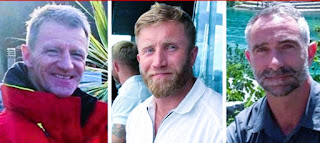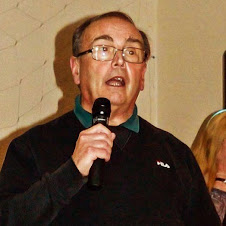Back in the previous century, when I was at the University of Salford, among my fellow-students were a number of Iranians. Some were known to be supporters of the then regime, headed by Mohammad Reza Shah Pahlavi, aka the last Shah of Iran. Others, opponents of the Shah, some of whom were friends and comrades of mine, formed an Alternative Iranian Society (AIS). The official society was said to be run by SAVAK, the Shah's secret service. Out of solidarity, I joined AIS, but never went to any meetings because they were conducted in Farsi. Still, I was happy to be an alternative Iranian. This was in the late 70s and, as we know, the Shah was overthrown in 1979. All my Iranian friends returned home and those of us who knew him only heard from one - Mohammed - who said that the Left was under pressure from the Islamists who supported the Ayatollah Khomeni. Indeed they were, as were all non-fundamentalists in Iran (they still are). I have often wondered over the years what happened to those young Iranians that I knew. I can only hope that they survived.
All this happened a long time ago, but, as we know, Iran is in the news for its massive missile attack against Israel. The topic for discussion, understandably, is the possibility of a retaliatory strike by the Israelis. It has been pointed out by some that Israel has launched targeted attacks against Iran for years, and the missile onslaught was retaliation for the killing of seven Revolutionary Guard officers in a clinical airstrike on the Iranian consulate in Damascus. Without becoming embroiled in a discussion about retaliation, which is a frequent occurrence in the Middle East, I think it of interest to look more closely at the organisation to which those officers belonged - the Iranian Revolutionary Guard Corps (IRGC).
Of particular interest to us here in the UK, and surely to all countries concerned, is the IRGC section known as Quds Force. They should concern us, as they are responsible for all operations abroad carried out in the name of the Iranian government. As such, they have been involved in all Middle East conflicts since the 80s. At the present time, they are supporting Hamas, Hezbollah and the Houthis. They are active in Syria and, closer to home, they are thought to be involved in assassination plots in Europe. In 2022, as Iran International said,:
"An operative of Iran's IRGC Qods Force held in a European country has admitted to plotting assassinations in Turkey, Germany and France, diplomatic sources say. The sources who spoke to Iran International on condition of anonymity said the accused who is currently in detention in a European country has admitted to receiving $150,000 for organizing the assassinations with one million promised to be paid to him after the completion of the operations".
And the Iranian state has not been idle when it comes to worldwide assassination, mostly, if not always, organised by Quds Force. The Iran Primer lists a number of murders and plots for murder around the world against Iranian dissidents and those whom the Iranian state would like to liquidate. As of 2023, the Islamic Republic was behind the murder of at least 20 opponents abroad and had killed scores of people in bombings of foreign military, diplomatic and cultural facilities. It targeted Americans, Europeans, Latin Americans, Israelis and Arabs as well as Iranian opposition members living abroad, according to U.S., U.N., Israeli and other government reports. The Iran Primer lists at least 88 attacks or plots:
- 21 targeted Iranian dissidents
- 35 targeted Israelis or Jews
- 25 plots were against Western targets
- 8 plots were against Arab or other regional target
"The plot, dubbed by its organizers The Wedding, was to target Fardad Farahzad, a current presenter at Persian-language news channel Iran International, and former presenter Sima Sabet, codenamed the bride and the groom, according to the ITV News' investigation, which was broadcast on December 20"
As Amnesty International reports:
"The number of executions in 2023 is the highest recorded since 2015 and marks a 48% increase from 2022 and a 172% increase from 2021. Iran’s killing spree is continuing into 2024, with at least 95 recorded executions by 20 March. Execution numbers recorded by Amnesty International are minimum figures and the organization believes the real number is higher".
In "fairness" to the Iranian regime, not all the people executed were political dissidents, but many were. And of course, women who do not wear the veil can find death dealt out to them on the street, as we saw with Mahsa Amani. Then there are the people who disappear. Amnesty International tells of:
" Iranian Kurdish dissidents Pejman Fatehi, Vafa Azarbar, Mohammad (Hazhir) Faramarzi and Mohsen Mazloum, are at grave risk of execution in secret, without prior notice to their families and lawyers, as the authorities have been subjecting them to enforced disappearance, a crime under international law, since July 2022. Amid a horrific spike in executions across Iran, the men’s death sentences, imposed after a grossly unfair secret trial, were upheld by the Supreme Court on 2 January 2024 and sent for implementation".
In conclusion, I would like to say that while Israel deserves the criticism it receives for its conduct of the war in Gaza, we should remember that the organisations and states it confronts are not exactly angelic. I have had Israel described to me as "the gangster state". If so, how should we describe Iran?
Pouria Zeraati, when in hospital. He is now out of hospital and feeling much better. The regime in Iran denies having anything to do with his stabbing. As I look out of my window now, I think I see pigs flying in formation over Hounslow.











